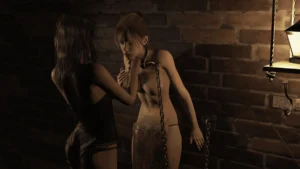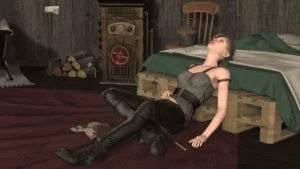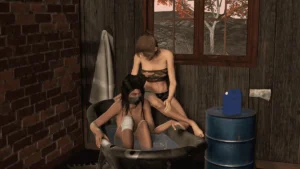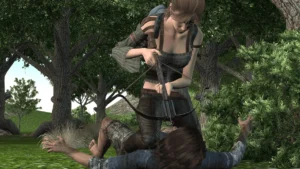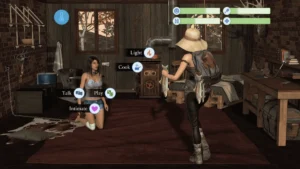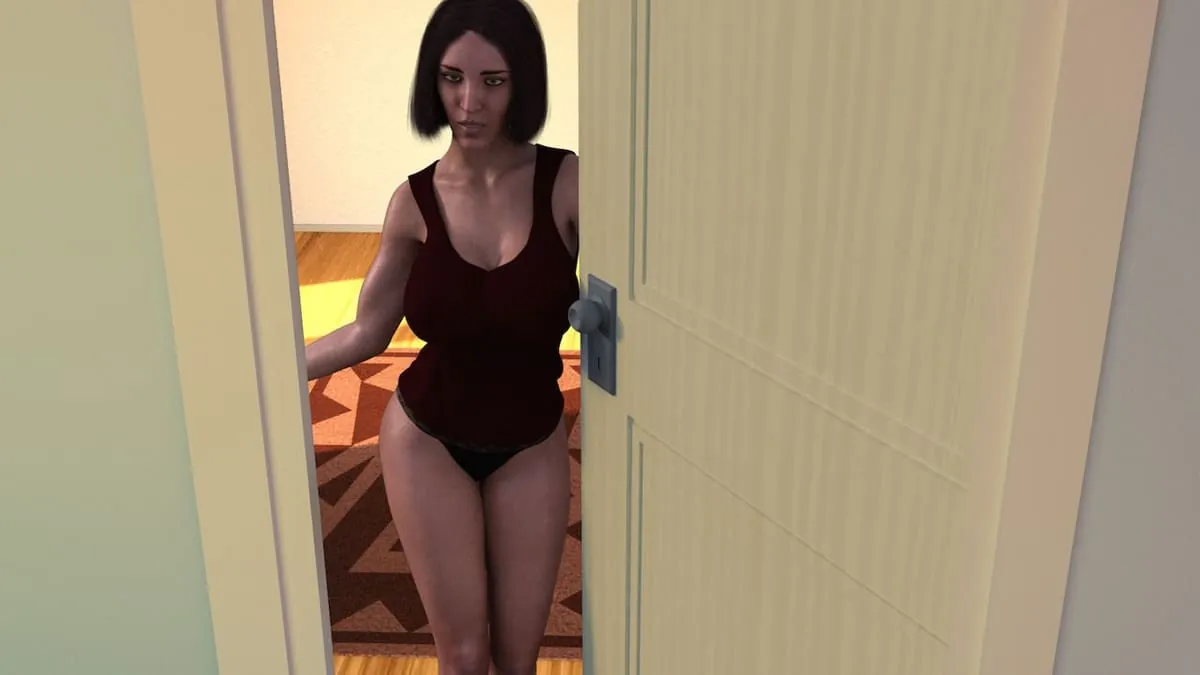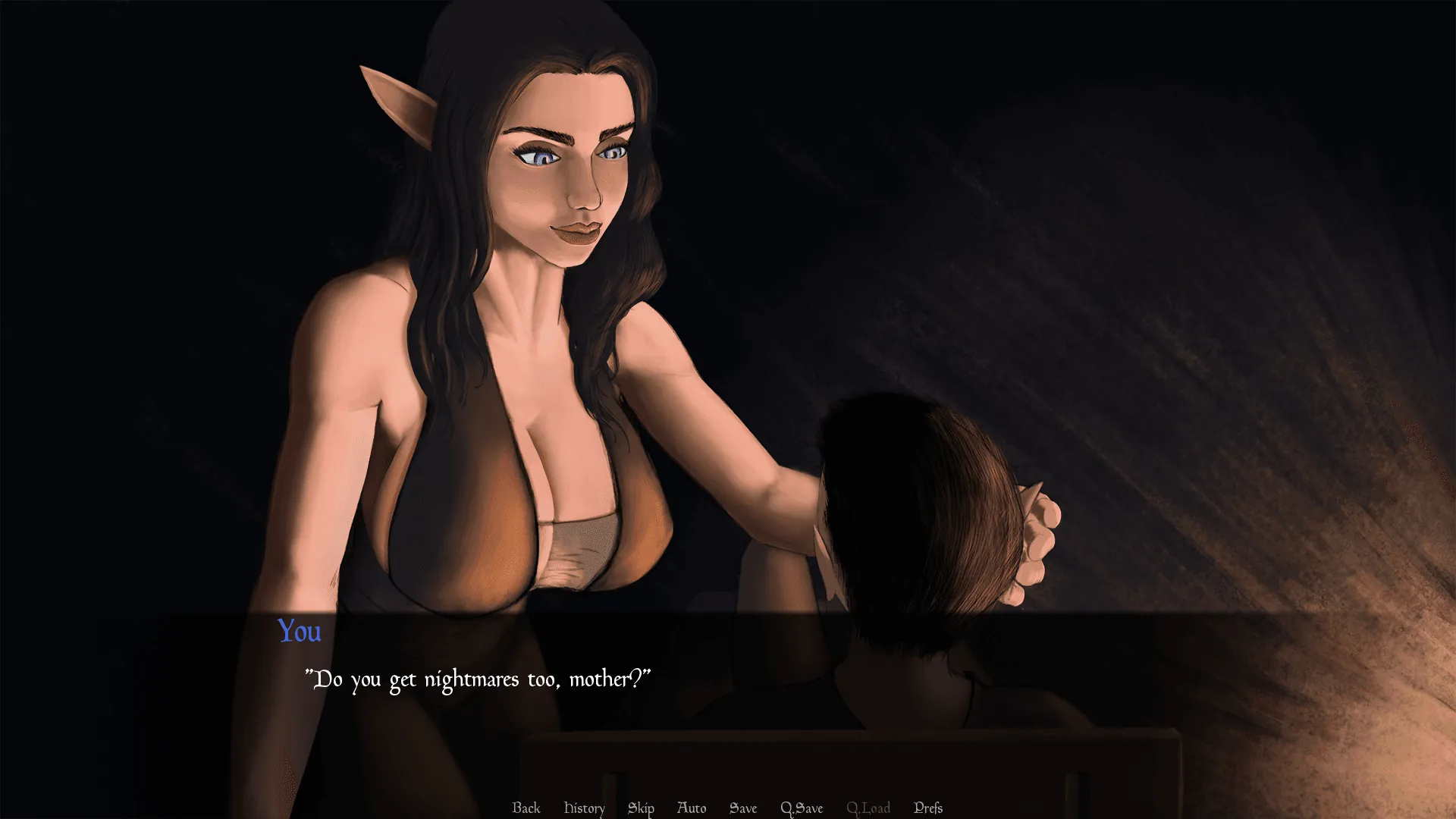
Teen Zombie in Your Cabin
Play Teen Zombie in Your Cabin
Teen Zombie in Your Cabin review
Master survival, relationships, and decision-making in this unique post-apocalyptic visual novel
Teen Zombie in Your Cabin stands out as a distinctive visual novel that blends survival mechanics with relationship-building in a post-apocalyptic setting. Three years after a devastating zombie uprising, you find yourself alone in an isolated cabin until you encounter a young zombie who seems different from the others. This game challenges players to balance humanizing and educating your unexpected companion while managing resources and navigating the dangers of a zombie-infested world. With its mature storytelling, interactive decision-making system, and complex character development, Teen Zombie in Your Cabin offers a thought-provoking gaming experience that goes beyond typical zombie narratives. Whether you’re interested in survival gameplay, narrative depth, or character-driven storytelling, this guide covers everything you need to know about what makes this game unique.
Understanding Teen Zombie in Your Cabin: Game Overview and Core Mechanics
Imagine you’ve survived three years alone in a post-apocalyptic world. 🏕️ Your days are a blur of scavenging, maintaining your cabin, and fighting off the gnawing loneliness. Then, one day, you find her—not another survivor, but a teenage girl who is clearly one of the infected. Yet, she’s different. She doesn’t attack; she just… watches. This is the breathtaking premise of Teen Zombie in Your Cabin, a game that completely redefines what a visual novel zombie game can be. Instead of reaching for a weapon, you’re faced with a monumental choice: do you take a chance on compassion?
This isn’t your typical shoot-’em-up. The core of the Teen Zombie in Your Cabin gameplay revolves around a simple but profound question: Can you reclaim someone’s humanity? Your mission shifts from mere survival to becoming a teacher and a guardian. You’ll manage your resources, defend your home, and make countless decisions that shape not only your fate but that of this unique young woman. It’s a deeply personal interactive decision-making game where every choice carries the weight of a world trying to rebuild itself from the ashes. Let’s dive into what makes this experience so unforgettable.
What Makes This Visual Novel Different from Traditional Zombie Games
If you’re picturing hordes of undead and an arsenal of shotguns, you need to reset your expectations. 😄 Most zombie games are power fantasies; this one is an emotional journey. The post-apocalyptic survival mechanics here are the backdrop, not the main event. The real “combat” happens in the quiet moments—teaching your companion to speak, helping her remember what it means to be human, and protecting her from a world that sees her only as a monster.
I remember my first playthrough. I was so conditioned by other games that I immediately started planning how to fortify the cabin against her. It took me a good hour to realize the game wasn’t giving me those options. The tools it provided were books, gestures of trust, and patience. This fundamental shift from violence to nurturing is what sets this relationship building zombie game apart. You’re not surviving against the apocalypse; you’re trying to create a small pocket of civilization within it.
The game’s development by a very small team (essentially a one-person operation) actually enhances this intimate feel. Every interaction, every line of dialogue, feels carefully crafted and purposeful. There are no filler quests or generic NPCs. The world is small, but it is deep, and your connection to the characters is all the more powerful for it. This focus allows for a raw, uncensored narrative that isn’t afraid to explore mature themes of isolation, connection, and what we’re willing to do for those we care about.
To really drive home the differences, let’s look at how this visual novel zombie game stands apart from the crowd:
| Aspect | Traditional Zombie Games | Teen Zombie in Your Cabin |
|---|---|---|
| Primary Focus | Combat, Action, Extermination | Compassion, Education, Relationship Building |
| Gameplay Style | Twitch-based shooting, resource hoarding for combat | Narrative choices, teaching mechanics, base upkeep for sustenance |
| Narrative Approach | Linear story with set-piece moments | Branching narrative deeply tied to player decisions and relationship status |
| Player Agency | Affects combat efficiency and survival time | Directly shapes the personality, memories, and fate of another character |
Core Gameplay Mechanics and Decision-Making System
At its heart, the Teen Zombie in Your Cabin gameplay is a masterclass in cause and effect. Every day presents you with a series of choices, from the mundane to the life-altering. Will you spend the afternoon reading to her from a children’s book, or go out hunting for more food? Do you scold her for a mistake, or encourage her to try again? These aren’t just flavor text; they are the building blocks of your shared story and the primary driver of the interactive decision-making game experience.
The relationship meter is invisible, but you feel its fluctuations constantly. Your companion’s reactions—a slight smile, a confused head tilt, a withdrawn posture—are your feedback. The game trusts you to read these subtle cues, making the connection feel earned rather than gamified. This system creates a powerful relationship building zombie game dynamic where you are genuinely invested in her progress.
Pro Tip: Consistency is key. If you’re trying to teach her a concept, like language or social norms, repeating the same positive reinforcement over several in-game days yields much better results than switching tactics constantly.
Let me give you a concrete example from my own playthrough. Early on, I found a ragged teddy bear while scavenging. I had a choice: give it to her as a comfort object, use it as kindling for the fire, or ignore it. I chose to give it to her. This single decision unlocked new, softer dialogue options later. She began to carry the bear around, and it became a symbol of our growing trust. In a subsequent encounter with another survivor, Yana, who was hostile towards my companion, my zombie girl clutched the bear tightly. My earlier choice had visually and narratively reinforced our bond, which subtly influenced the tense conversation that followed. This is the magic of the Teen Zombie in Your Cabin decision-making—your choices are woven into the very fabric of the narrative. 🧸
The multiple endings visual novel aspect is entirely dependent on this system. There are no “right” or “wrong” choices in a vacuum, only choices that lead to different outcomes. Will you succeed in rekindling her humanity? Will she remain in a feral state? Or will your attempts to bridge two worlds end in tragedy? Your journey through this post-apocalyptic survival mechanics-driven world is uniquely yours, and the finale feels like a direct reflection of the person you chose to be throughout the game.
Survival Elements and Resource Management
Don’t let the focus on relationships fool you—the apocalypse is still a dangerous, unforgiving place. 🪓 This is where the game brilliantly integrates classic post-apocalyptic survival mechanics into its emotional core. You are responsible for a fully realized base management survival game, with your cabin serving as the sanctuary for you and your companion.
Your primary concerns are straightforward but constant:
* Food: You need a steady supply, especially fresh meat, to keep both of you healthy. This involves hunting, setting traps, and sometimes making difficult choices about rationing.
* Security: The cabin needs repairs. Boards on windows must be maintained, and the door must be sturdy enough to deter both wandering infected and other, less compassionate survivors.
* Supplies: Medicine, tools, books, and other items are crucial not just for survival, but for your “project” of education. A first-aid kit can treat wounds, but a storybook can treat the soul.
The brilliance of this base management survival game loop is how it intersects with the relationship. You can’t teach her if you’re both starving. You can’t expect her to learn if you haven’t secured the cabin for the night. The management isn’t a separate mini-game; it’s the foundation upon which your entire relationship is built. I learned this the hard way when I neglected my hunting duties to focus on teaching. Our hunger made us both irritable, leading to a major argument that set our relationship back significantly. The game perfectly illustrates that you cannot nurture a mind while ignoring the body.
This is further complicated by the arrival of other characters, like Yana the hunter. 👩🦰 Yana can be a valuable ally, providing you with resources and protection, or a dire threat. Your interactions with her are another layer of the interactive decision-making game. Do you trust her with the secret of your companion? Do you accept her help, knowing she might want to “put down” what she sees as a monster? Your decisions here directly affect your resource flow and safety, adding a thrilling layer of social strategy to the Teen Zombie in Your Cabin gameplay.
Ultimately, the Teen Zombie in Your Cabin experience is a powerful blend of heart and hardship. It proves that a visual novel zombie game can be just as tense and engaging as any action title, with stakes that feel even higher because they’re emotional. By mastering the post-apocalyptic survival mechanics, navigating the delicate interactive decision-making game, and investing in the relationship building, you’re not just playing a game—you’re crafting a story about hope in the most hopeless of places, a story that culminates in one of several deeply affecting multiple endings. It’s a journey that will stay with you long after you’ve closed the game.
Teen Zombie in Your Cabin represents a thoughtful approach to mature gaming that prioritizes narrative substance and character development alongside adult content. The game successfully blends survival mechanics with relationship-building, offering players meaningful choices that shape their story and character interactions. With its unique premise of humanizing a zombie companion, complex moral themes, and multiple endings, the game appeals to players seeking story-driven experiences in a post-apocalyptic setting. Whether you’re drawn to visual novels, survival games, or mature narratives with emotional depth, Teen Zombie in Your Cabin delivers a distinctive gaming experience that respects player agency and storytelling quality. The game’s modest technical requirements make it accessible to a wide range of players, while its uncensored content and mature themes ensure it’s positioned appropriately for adult audiences. If you appreciate games that challenge your perspective on humanity, survival ethics, and relationships in extreme circumstances, Teen Zombie in Your Cabin offers a compelling journey worth exploring.

